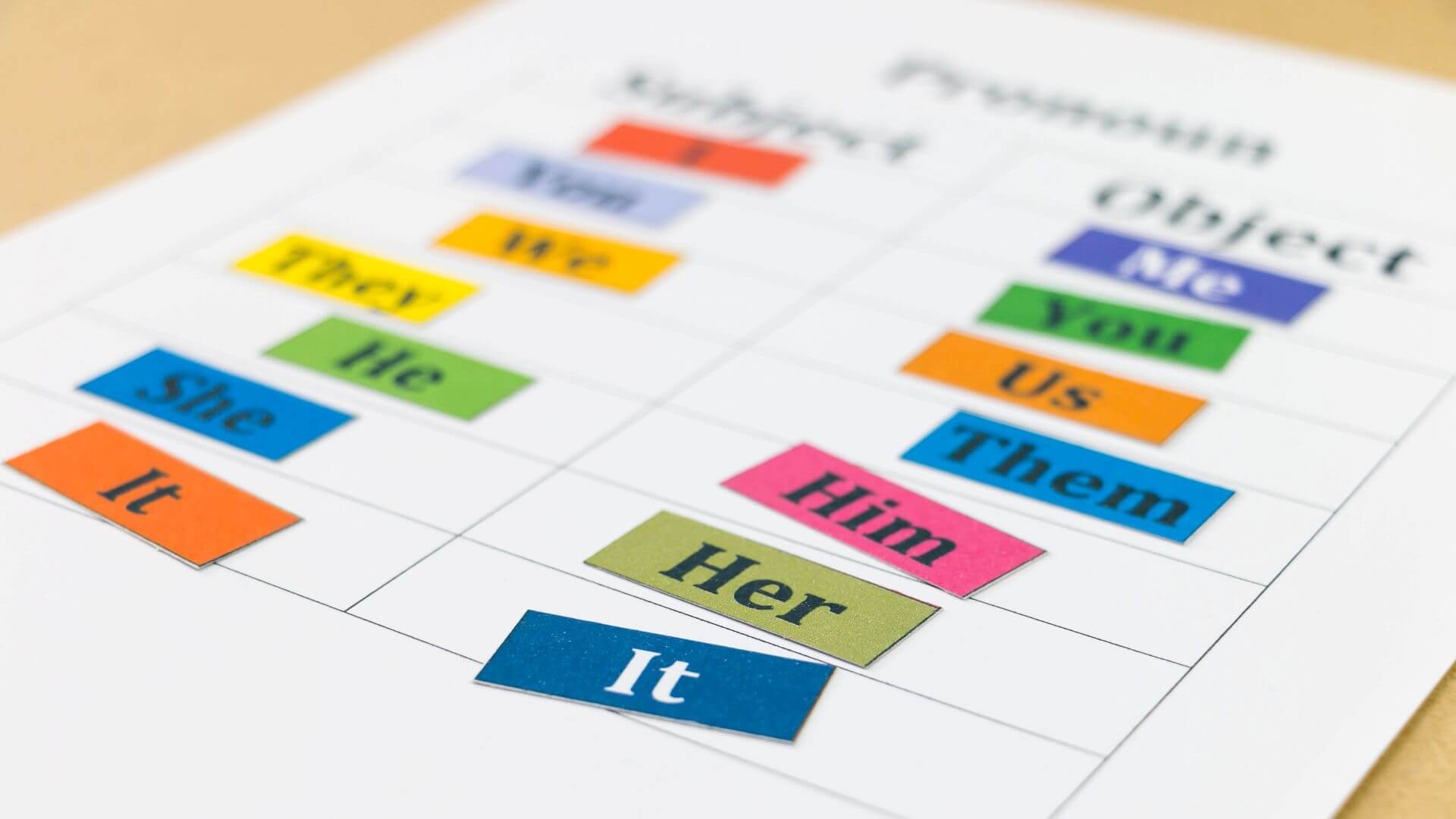
The Most Common English Pronunciation Mistakes and How to Avoid Them
While learning English, using the right pronunciation is important to have clear communication. Here are the common English pronunciation mistakes and tips to avoid them.

Like our Post? Share Now!
Pronouns are like the secret agents of the English language, stepping in to avoid repetition and keeping our conversations smooth and engaging. Imagine talking about your friend Alex and having to use Alex’s name every single time. That’s where pronouns come in, helping us with words to make our sentences more fluent. Let’s explore the different types of pronouns and see how they work their magic in our daily communication!
In the simplest terms, pronouns are words that replace nouns. Instead of repeating “Alex” a dozen times in a story, you can use pronouns like “he” or “they” after the first mention. This makes your sentences cleaner and easier to follow.
Pronouns come in various shapes and sizes, each serving a unique purpose. Let’s explore the most common types:
These types of pronouns are the ones we use most in daily conversations. They represent specific people or things and change based on number (singular or plural), person (first, second, or third), and gender (he, she, they). For instance:
– First Person: “I” for singular, “we” for plural. Example: “I went to ES Dubai, and we had a blast!”
– Second Person: “You” for both singular and plural. Example: “You should visit English schools in Dubai.”
– Third Person: “He/she/it” for singular, “they” for plural. Example: “She learned a lot through the English courses.”
These pronouns indicate ownership or possession. Unlike possessive adjectives (my, your, his), possessive pronouns are used without nouns. Examples include “mine,” “yours,” “hers,” “ours,” and “theirs.”
For example: “Is that your backpack?” “No, mine is over there.”
In a sentence, when the subject and object are the same, reflexive pronouns are helpful to replace the nouns. They end in “-self” or “-selves.” Examples are “myself,” “yourself,” and “themselves.”
For example: “She prepared herself for the presentation at ES Dubai.”
These pronouns point to specific things or people and include “this,” “that,” “these,” and “those.” They’re handy for indicating objects in space or time.
For example: “That was an unforgettable experience at ES Dubai.”
When you’re asking questions, interrogative pronouns are your go-to. They include “who,” “whom,” “whose,” “which,” and “what.” For instance:
“Who is the new teacher at ES Dubai?”
With these pronouns, you can refer to nonspecific things or people. They include words like “someone,” “anything,” “each,” and “many.”
For example: “Everyone at ES Dubai was excited about the event.”
Relative pronouns introduce relative clauses and relate them to nouns or pronouns in a sentence. They include words similar to interrogative pronouns such as “who,” “whom,” “whose,” “which,” “that” but with different applications. For example: “The student who won the contest at ES Dubai gave an inspiring speech.”
To see how pronouns enhance our communication, let’s compare sentences with and without them:
– Without pronouns: “Alex went to Alex’s car because Alex forgot Alex’s phone in Alex’s car.”
– With pronouns: “Alex went to his car because he forgot his phone there.”
The second sentence is much easier to read and understand, thanks to pronouns.
1. Refer Clearly: Make sure your pronoun refers to a specific noun. Avoid ambiguity to keep your message clear.
2. Match Number and Gender: Ensure your pronoun matches the number (singular or plural) and gender (if applicable) of the noun it’s replacing.
3. Practice: The more you read and write, the better you’ll get at using pronouns naturally and effectively.
Pronouns do more than save us from repetition; they also allow us to speak and write with sensitivity and inclusivity. Understanding and respecting people’s preferred pronouns is a way to acknowledge their identity and dignity. It’s a simple but powerful way to create a welcoming and inclusive environment, whether at ES Dubai or anywhere else.
Pronouns are small but mighty parts of speech that make our communication smoother, more respectful, and more engaging. By mastering the different types and their uses, you’ll improve your grammar and become a more considerate and effective communicator. Remember, language is a communication tool, and pronouns help us wield that tool with finesse.
Like what you read? We love to keep you updated about everything at ES. Check out our different courses, exciting facts about Dubai, news, updates, amazing success stories from us and much more.

While learning English, using the right pronunciation is important to have clear communication. Here are the common English pronunciation mistakes and tips to avoid them.

In this article, we’ll take you on a journey into social media marketing and help you understand how to become a specialist.

Like our Post? Share Now! We love that there are endless indoor activities to do during the summer months in
We don't say that,
At ES Dubai, we make studying English a fun and fascinating experience for every student. A family-like atmosphere in a culturally diverse community at our school is our asset. Our school will become your second home while you learn, discover, and enjoy Dubai.

We offer full time and part time English courses to international students.
15th, 34th, 36th Floors BB1 Mazaya Business Avenue, JLT, Dubai, UAE
5th floor, UOWD Building, Dubai Knowledge Park, Dubai, UAE
15th, 34th, 36th Floors BB1 Mazaya Business Avenue, JLT, Dubai, UAE
5th floor, UOWD Building, Dubai Knowledge Park, Dubai, UAE
marketing@esdubai.com
+971 4 398 2815
+971 52 701 4480